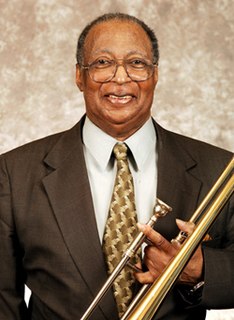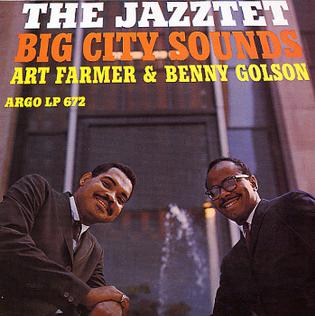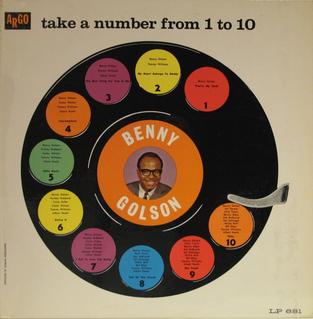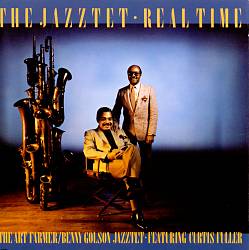| Meet the Jazztet | ||||
|---|---|---|---|---|
 | ||||
| Studio album by Art Farmer and Benny Golson | ||||
| Released | 1960 | |||
| Recorded | February 6, 9 & 10, 1960 Nola Penthouse Studios, New York City | |||
| Genre | Jazz | |||
| Length | 39:56 | |||
| Label | Argo LP 664 | |||
| Producer | Kay Norton | |||
| Art Farmer chronology | ||||
| ||||
| Benny Golson chronology | ||||
| ||||
Meet the Jazztet is an album by the Jazztet, led by trumpeter Art Farmer and saxophonist Benny Golson featuring performances recorded in 1960 and originally released on the Argo label. [1]
The Jazztet was a jazz sextet, co-founded in 1959 by trumpeter Art Farmer and tenor saxophonist Benny Golson, always featuring the founders along with a trombonist and a piano-bass-drums rhythm section. In its first phase, the Jazztet lasted until 1962, and helped to launch the careers of pianist McCoy Tyner and trombonist Grachan Moncur III. Farmer and Golson revived the group in 1982 and it again toured extensively. Each generation of the group recorded six albums, which were released on a variety of labels.

Arthur Stewart Farmer was an American jazz trumpeter and flugelhorn player. He also played flumpet, a trumpet–flugelhorn combination especially designed for him. He and his identical twin brother, double bassist Addison Farmer, started playing professionally while in high school. Art gained greater attention after the release of a recording of his composition "Farmer's Market" in 1952. He subsequently moved from Los Angeles to New York, where he performed and recorded with musicians such as Horace Silver, Sonny Rollins, and Gigi Gryce and became known principally as a bebop player.
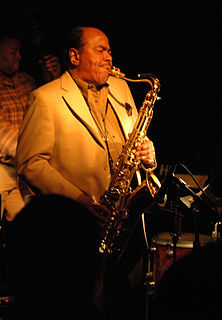
Benny Golson is an American bebop/hard bop jazz tenor saxophonist, composer, and arranger. He came to prominence with the big bands of Lionel Hampton and Dizzy Gillespie, more as a writer than a performer, before launching his solo career. Golson is known for co-founding and co-leading The Jazztet with trumpeter Art Farmer in 1959. From the late 1960s through the 1970s Golson was in demand as an arranger for film and television and thus was less active as a performer, but he and Farmer reformed the Jazztet in 1982. Several of Golson's songs have become jazz standards, including "Blues March", "Whisper Not", "I Remember Clifford", and "Killer Joe".
